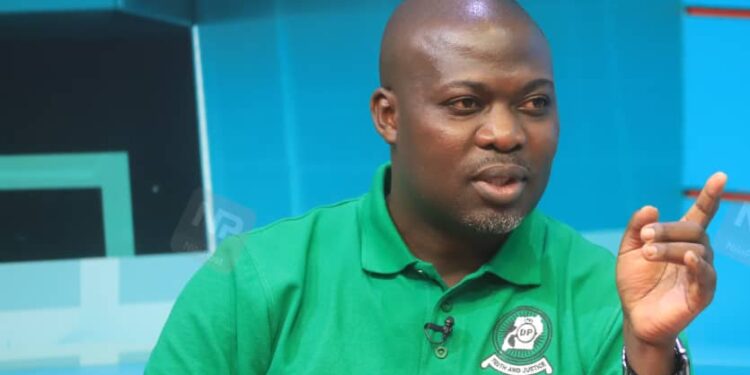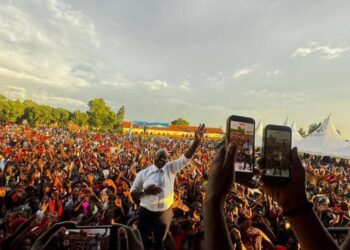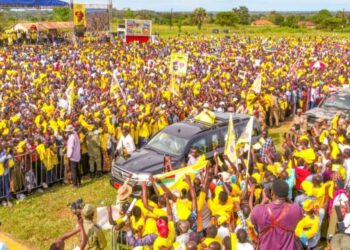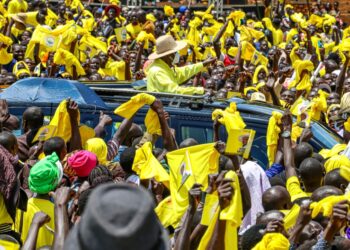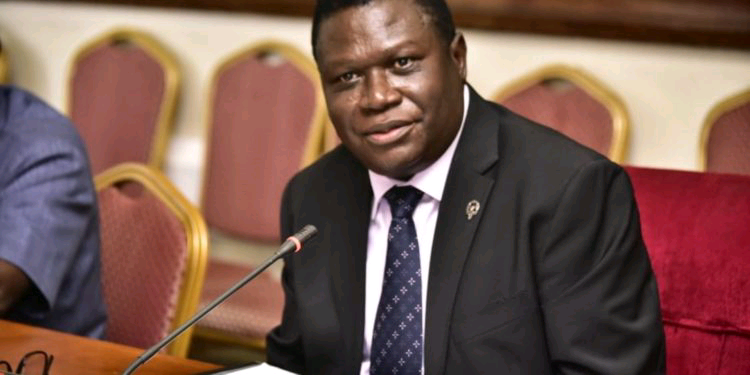
As Uganda’s Democratic Party (DP) gears up for its pivotal National Delegates Conference to elect new leaders, including the President General, a fierce leadership battle has erupted between incumbent Norbert Mao and challenger Richard Sebamala.
Sebamala, the Bukoto Central MP, has publicly accused Mao of orchestrating manipulative tactics to block his candidacy and maintain control over the party. These allegations highlight deep-seated tensions within DP, Uganda’s oldest political party, as it struggles to maintain relevance ahead of the 2026 general elections.
Sebamala’s accusations center on Mao’s alleged attempts to disqualify him from the presidential race by invoking strict eligibility criteria. Mao claims Sebamala does not meet the DP constitution’s requirement of 10 years of active membership or five years in a senior party body to contest for President General. Sebamala, who transitioned from a career as a civil engineer to politics in 2019, argues that these rules are being weaponized to stifle competition. He asserts that the National Council and Delegates Conference have the authority to amend such regulations in the party’s interest, accusing Mao of clinging to power through procedural maneuvers.
“These are tactics to lock out challengers,” Sebamala declared in a recent statement, emphasizing his long-standing support for DP, even during his time as a civil servant.
Mao, who has led DP since 2010, has faced growing criticism for his leadership style and decisions, particularly his 2022 cooperation agreement with President Yoweri Museveni’s National Resistance Movement (NRM). This pact, which secured Mao’s appointment as Minister of Justice and Constitutional Affairs, has been widely condemned by party loyalists as a betrayal of DP’s opposition roots.
Sebamala and his supporters argue that Mao’s alignment with the NRM has eroded DP’s credibility, leading to a significant loss of members and influence. Since 2016, DP’s parliamentary representation has plummeted from 15 MPs to just six in 2025, with defections to the National Unity Platform (NUP) intensifying the crisis. Notable defectors include MPs Fortunate Rose Nantongo, John Paul Mpalanyi, and Semakula Luttamaguzi, who cited disillusionment with Mao’s leadership.
Sebamala has also accused Mao of exacerbating tribalism and division within DP, particularly targeting rivals from the Buganda region. Mao has publicly labeled critics from Buganda as divisive, yet Sebamala argues that Mao’s leadership has fueled these very issues. “Under Mao, tribalism and division have grown exponentially,” Sebamala stated, pointing to the loss of DP’s traditional strongholds in Buganda to NUP.
Ironically, Mao’s response to these defections has been dismissive, with some reports suggesting he views them as a purging of disloyal members. Sebamala contends that Mao’s celebration of these exits defies logic, as it weakens DP’s electoral prospects and alienates its base.
The controversy over delegate registration further fuels Sebamala’s claims of manipulation. Critics accuse Mao’s team, led by the party’s Organizing Secretary, of selectively enrolling delegates loyal to him while sidelining those from DP strongholds where support for Sebamala is strong. Allegations of using expired 2024 membership cards and registering delegates from districts with minimal DP presence, such as Kisoro, have sparked outrage. Sebamala’s camp argues these tactics are designed to rig the upcoming election in Mao’s favor, undermining DP’s democratic principles.
Sebamala, who gained prominence by defeating former Vice President Edward Ssekandi in the 2021 Bukoto Central parliamentary race, positions himself as a reformer intent on restoring DP’s “lost glory.” His campaign emphasizes transparency, grassroots engagement, and a return to DP’s opposition roots, rejecting Mao’s NRM alliance “‘Mao’s pact has shackled DP to the ruling party,’
Sebamala posted on X, rallying supporters with the hashtag #SebamalaForDP.” Despite challenges, including a Shs10 million nomination fee seen as exclusionary, Sebamala paid the fee on May 2, 2025, signaling his determination to challenge Mao.
As the Delegates Conference approaches, DP faces an existential crisis. Sebamala’s allegations of manipulation, coupled with Mao’s controversial leadership, threaten to further fracture the party. With NUP gaining ground among DP’s traditional voters, the outcome of this leadership battle will determine whether DP can reclaim its relevance or continue its decline under Mao’s stewardship.
Do you have a story in your community or an opinion to share with us: Email us at editorial@watchdoguganda.com

